Specialist Doctor 1 Nguyen Thu Ha,FPT Long Chau Pharmacy System, said that high blood fat is increasingly common in modern society. This disease requires patients to strictly control their diet to prevent cardiovascular complications. Peanuts are one of the familiar foods, long associated with Vietnamese meals. From rustic dishes to specialties, peanuts are always popular thanks to their rich, fatty flavor and rich in energy and nutrients.
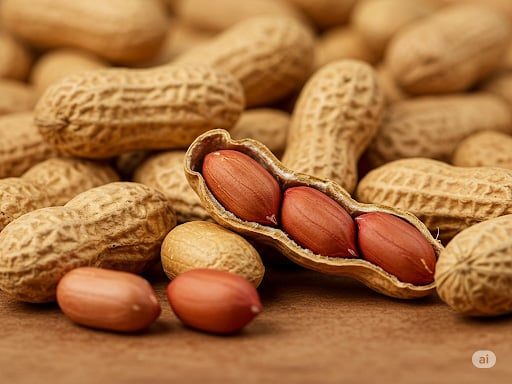
Peanuts are always popular because of their rich, fatty flavor and rich in energy and nutrients.
Photo: AI
Nutritional composition of peanuts
100g of raw peanuts contain about 567 kcal, 7% water, 25.8g protein, 16.1g carbohydrate, 4.7g sugar, 8.5g fiber and 49.2g fat. Fat content includes 6.28g saturated fat, 24.43g monounsaturated fat, 15.56g polyunsaturated fat (omega-6), no omega-3. In addition, peanuts also provide many vitamins and minerals such as biotin, vitamin E, vitamin B3 (niacin), vitamin B9 (folic acid), magnesium, manganese, copper, phosphorus and zinc.
Outstanding health benefits of peanuts
Providing healthy fats for the body: Peanuts contain high levels of monounsaturated fat (oleic acid). This is a type of fat that is good for heart health.
Powerful Antioxidant: The red skin of peanuts contains flavonoids and resveratrol - antioxidants that help protect blood vessel walls and slow down cell aging. Resveratrol has also been shown to help fight inflammation, protect the brain and reduce the risk of Alzheimer's disease.
Ideal source of plant protein: With nearly 26g protein/100g, peanuts are an ideal source of plant protein, helping to build and repair muscles.
Brain support, anti-aging: Niacin (vitamin B3) and resveratrol in peanuts help improve memory, increase concentration, and reduce the risk of cognitive decline in the elderly. Vitamin E, biotin, and minerals also help protect skin and hair, act as antioxidants, and boost immunity.
Good for digestion, weight control: The high fiber content in peanuts helps improve digestion, creates a feeling of fullness for a long time, and supports weight control if eaten in moderation.
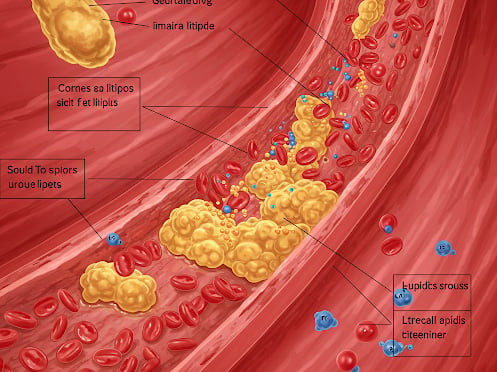
People with high cholesterol can eat peanuts but need to control the amount.
Illustration: AI
How do people with high cholesterol eat peanuts?
People with high cholesterol can eat peanuts but need to control the quantity and process them properly to take advantage of the benefits and limit the risks.
Control your intake. According to nutritionists, people with high blood fat should not eat more than 250g of peanuts per week, equivalent to about a small handful per day. Peanuts also contain high calories and fat (166 kcal/28g of dry roasted peanuts). Eating too much can easily lead to weight gain, making blood fat worse. For overweight and obese people, this will lead to an increased risk of atherosclerosis and cardiovascular disease.
Prioritize simple processing methods. In addition, you should prioritize using boiled peanuts, unsalted roasted peanuts and keep the shell of the nut intact. It is also advisable not to add salt, sugar or unhealthy fats to peanut dishes. Simple processing also helps control calories, reduce the burden on the digestive system and limit the risk of unwanted weight gain in people with high blood fat.
Do not use peanuts that show signs of mold. You should absolutely not use moldy, wormy, or sprouted peanuts to prevent the risk of aflatoxin poisoning. Aflatoxin is a toxin that can cause acute poisoning, serious liver damage, and increase the risk of liver cancer. To protect your health, choose fresh, shelled peanuts, store in a cool, dry place, and remove any peanuts that show signs of abnormality before use.
Combined with a healthy diet
According to Dr. Thu Ha, to optimize the effectiveness of controlling blood fat, you should combine peanuts in a diet rich in green vegetables, fish, and whole grains. Some peanut dishes suitable for people with high blood fat include: Boiled peanuts with the skin on, unsalted roasted peanuts, unsweetened peanut milk, pumpkin peanut soup, etc.
In addition to a reasonable diet, people with high blood lipids may need to take lipid-lowering drugs as prescribed by their doctor, such as statins, fibrates, or ezetimibe. Medication should be combined with regular blood lipid monitoring, lifestyle and nutritional adjustments to achieve optimal blood lipid control and prevent long-term complications.
Source: https://thanhnien.vn/dau-phong-tot-cho-suc-khoe-nhung-nguoi-mo-mau-cao-can-luu-y-dieu-nay-185250501171219606.htm




![[Photo] Prime Minister Pham Minh Chinh chairs the 15th meeting of the Central Emulation and Reward Council](/_next/image?url=https%3A%2F%2Fvphoto.vietnam.vn%2Fthumb%2F1200x675%2Fvietnam%2Fresource%2FIMAGE%2F2025%2F11%2F27%2F1764245150205_dsc-1922-jpg.webp&w=3840&q=75)
![[Photo] President Luong Cuong attends the 50th Anniversary of Laos National Day](/_next/image?url=https%3A%2F%2Fvphoto.vietnam.vn%2Fthumb%2F1200x675%2Fvietnam%2Fresource%2FIMAGE%2F2025%2F11%2F27%2F1764225638930_ndo_br_1-jpg.webp&w=3840&q=75)




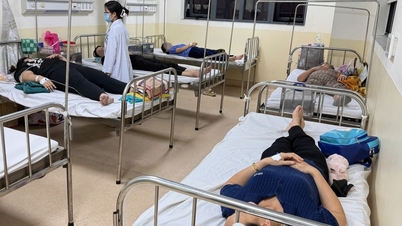




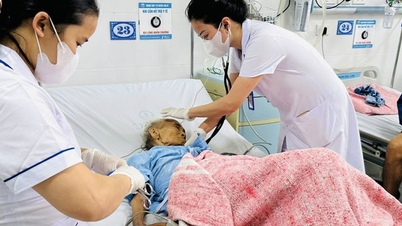





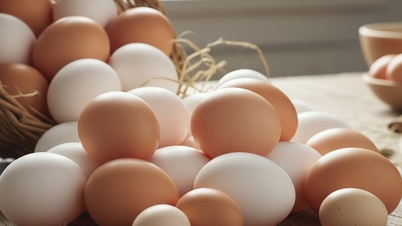
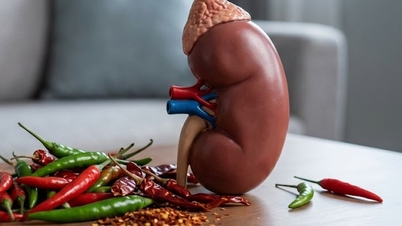








































































Comment (0)